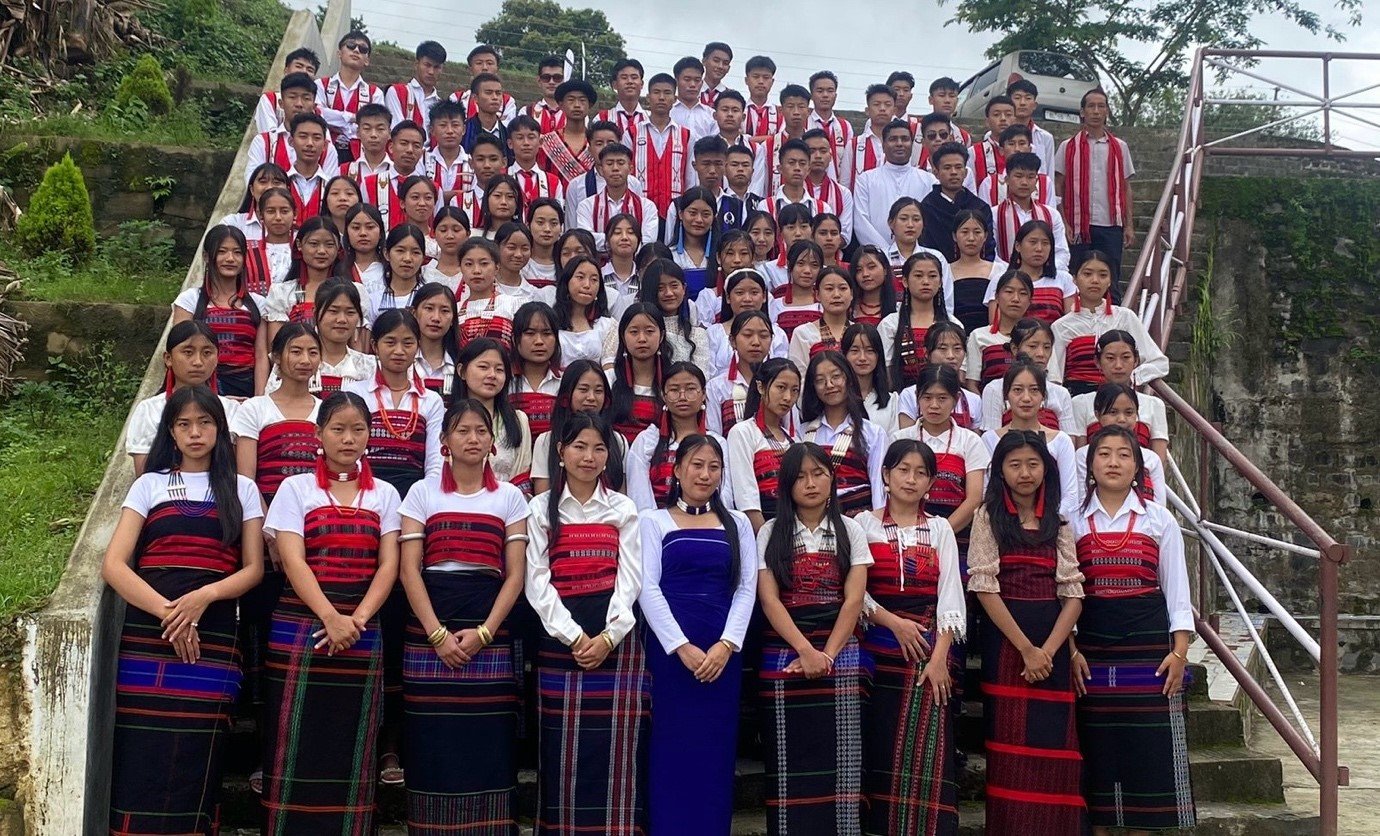Preserving the rich Naga cultural and traditional heritage, particularly that of the Lotha tribe, the class 12 students of Don Bosco Higher Secondary School, Wokha, participated in a cultural activity on 13th July, 2024. Under the theme “Sustaining Traditions: Cultural Preservation,” the event witnessed the practice of traditional shawl weaving, earring designing, bamboo plate making, and basket weaving.
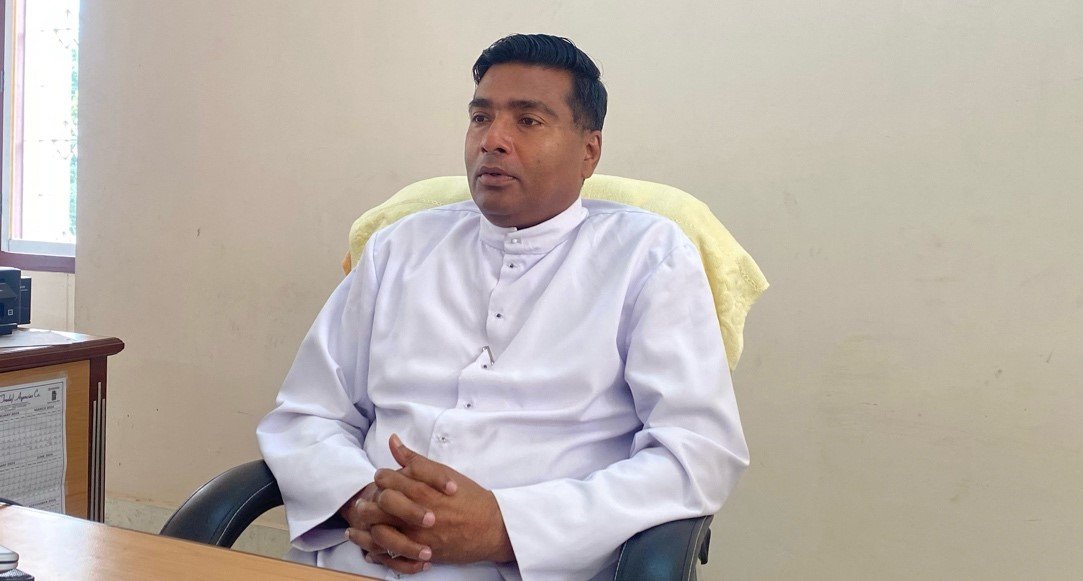
Recognising the need to preserve the rich cultural heritage of the Lothas and to promote skill development, the event was initiated by the language teacher, Marcus Lotha. He lamented that in this fast-changing world, students are influenced by the West and other foreign cultures, gradually making the young people forget their own culture and identity. He encouraged the students to value and carry forward the rich cultural heritage of the Lothas.
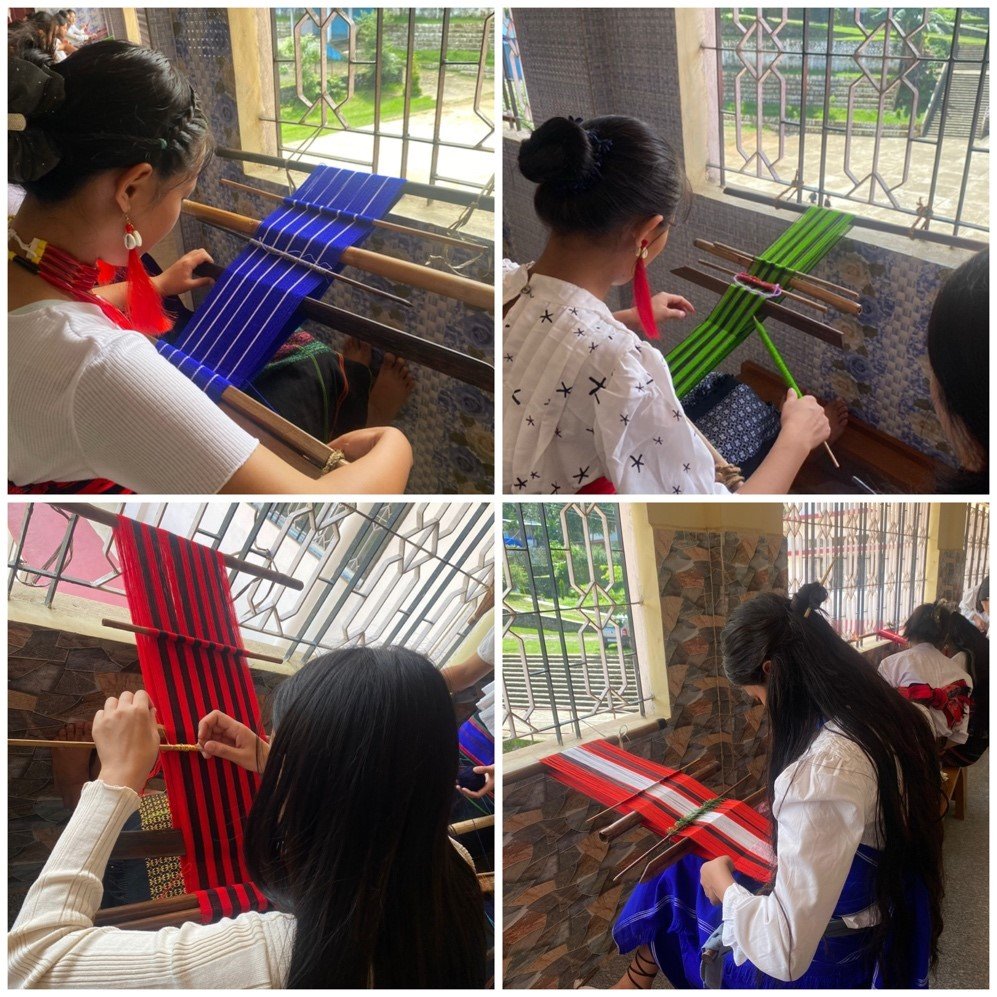
Speaking on the occasion, Rev. Fr. T.C. Joseph, Principal of DBHSS Wokha, highlighted the importance of not forgetting one’s culture. He noted that the Lotha people are known for their rich cultural heritage through indigenous games, songs, dances, and skills based on traditions. This inspired the school to help students learn about their culture and the legacies handed down by their forefathers.
Download Nagaland Tribune app on Google Play

Fr. Joseph stated that the school is integrating cultural aspects into its educational system by introducing the skill set of Arts & Crafts. The school organises the event every year, setting aside time for both practical and theoretical aspects, with skilled staff guiding the students in weaving, basket making, mat making, and cultural dances, including cultural games. He outlined that each year the school focuses on different cultural aspects.
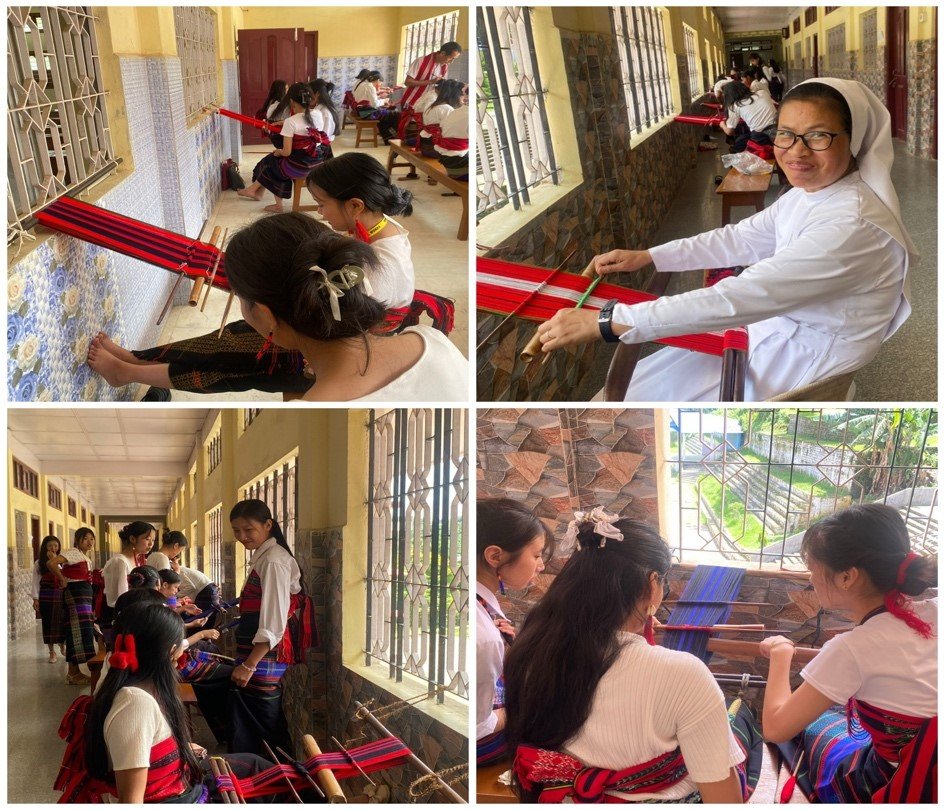
Last year, they conducted activities related to agriculture, such as the planting and sustenance of seeds. He stressed that there are many varieties of rice in the region, but the number of indigenous varieties is declining due to reliance on public supply systems importing rice. He warned that this trend risks the loss of tastier and healthier indigenous varieties. To combat this, the school introduced cultural agricultural practices, encouraging students to preserve these rice varieties and other agricultural produce.
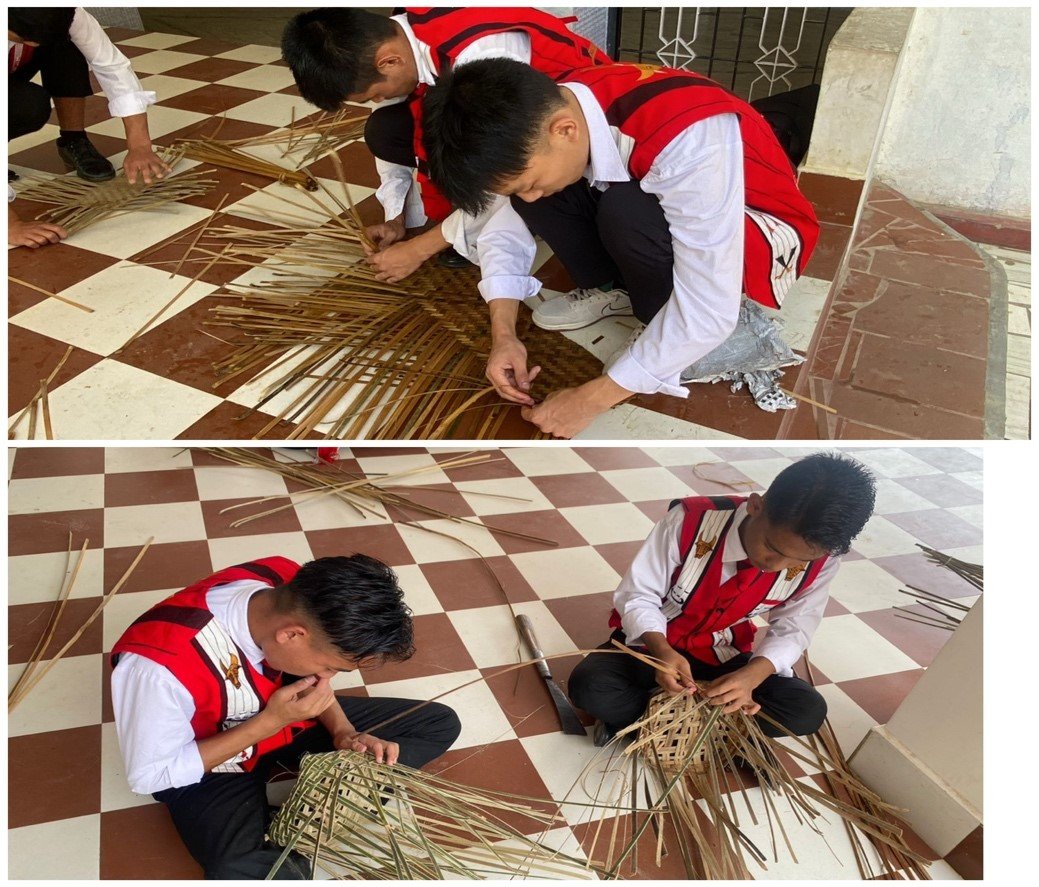
Fr. Joseph emphasised that culture is intrinsic to our identity, influencing every aspect of life. He encouraged recognising and incorporating cultural values into systems like education and public administration. He advocated for equipping each generation with a strong cultural background, knowing their language, and encouraged Lotha children to take up Lotha as a second language. He believes sustaining the language requires writing stories, dramas, and novels in the local dialect.
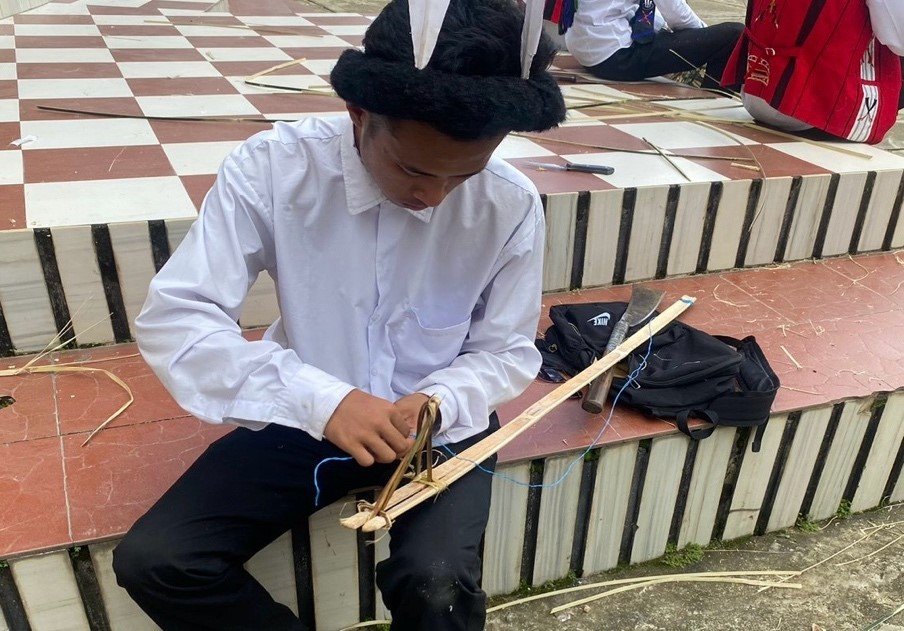
He also mentioned that the school invites local artisans and important community members during assemblies and cultural events. He expressed joy that groups like the LSU, the Lotha Cultural Group, and linguistic groups actively conduct cultural events and competitions at school, supported by local agencies. He cautioned against losing cultural identity due to Western education and the imitation of different cultures, which could erode the values of one’s own culture.
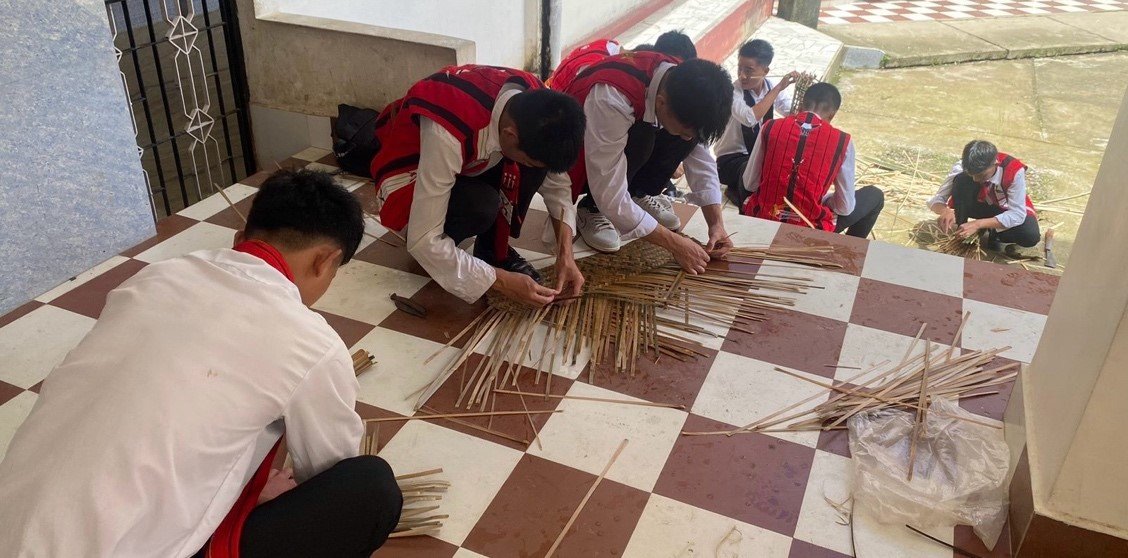
Lastly, he conveyed a message to parents and the Lotha community to encourage children to engage in cultural activities throughout the year. He expressed that students should be given the chance to know and identify with their own culture, encouraging them to learn and appreciate their roots while serving society.
Traditional shawl weaving and earring designing were carried out by the female students, while the male students participated in basket weaving and bamboo plate making.
